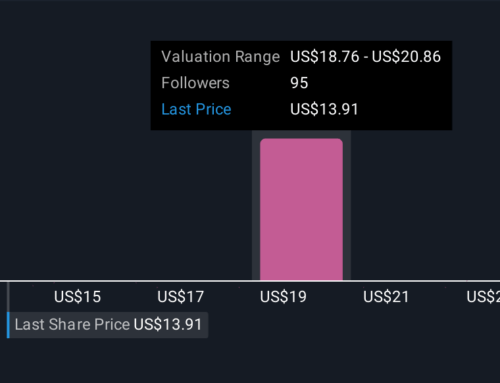New York CCB Unanimously Votes to Overturn ‘Unreasonable’ Local Cannabis Rules
October 8, 2025
New York’s Cannabis Control Board (CCB) has unanimously overturned Southampton’s restrictive cannabis ordinances, ruling that the town’s permitting scheme was illegal and designed to prevent legal dispensaries from opening.
The decision, issued Monday, invalidates multiple sections of Southampton’s local zoning code and sets a statewide precedent for how far municipalities can go in regulating cannabis businesses.
The ruling came after Southampton-based dispensary owners Marquis Hayes and Kim Stetz, of Brown Budda, filed suit against the town, accusing local officials of weaponising zoning and permit rules to block their state-licensed store. Their attorney, Christian Killoran, called the board’s decision ‘a resounding rebuke to local officials who once claimed we live here, the state does not live here.’
“The state has now made its position unmistakably clear, Southampton is in New York,” Killoran said.
“The decision affirms that state law, not local politics, governs cannabis regulation and that municipalities cannot rewrite the rules to fit their own agendas.”
CCB Declares Local Rules ‘Unreasonably Impracticable’
According to the CCB’s Advisory Opinion 2025-02, adopted at its 6 October 2025 meeting, Southampton’s local code imposed ‘unreasonably impracticable’ restrictions under the Marijuana Regulation and Taxation Act (MRTA).
The board found that the town’s requirements for ‘special-use permits, distance buffers, and cannabis-specific fees’ violated Section 131(2) of the Cannabis Law by frustrating state-licensed operators’ ability to open and operate businesses.
The decision also struck down Southampton’s attempt to regulate cannabis deliveries, declaring such actions ‘completely outside of municipal authority.’
Under the ruling, municipalities may only regulate cannabis businesses within the narrow ‘time, place and manner’ limits listed in 9 NYCRR §119.2, such as operating hours, parking, traffic management, odour control and architectural integrity within historic districts.
Broader restrictions, such as limiting dispensaries to select business zones, mandating special fees, or imposing design standards, are now considered unlawful.
Join 300+ industry leaders at Business of Cannabis: New York — an exclusive one-day event presented by Prohibition Partners at The Wythe Hotel, Williamsburg, on November 6, 2025.
This VIP gathering will bring together investors, operators and policy-makers to explore strategies for driving investment and accelerating retail growth across the New York cannabis market.
Be part of the conversation shaping the future of legal cannabis in New York.
A Victory for Brown Budda and Statewide Operators
For Brown Budda, one of the first dispensaries approved on Long Island in 2022, the ruling ends years of stalled progress and costly litigation.
“I believed I was about to seize the American dream,” Hayes told the New York Post.
“Instead, the Town of Southampton turned it into a nightmare. The nightmare is almost over.”
The dispensary has reported losses in the millions due to expired product, rent, and legal fees while waiting for permission to open.
The decision also applies more broadly, signalling that towns across New York cannot enact backdoor bans through zoning or permitting after missing the state’s 2021 opt-out deadline.
The CCB’s accompanying Advisory Opinion 2025-01, concerning Riverhead’s similar restrictions, reinforces the board’s expansive interpretation of state pre-emption over local cannabis rulemaking.
A New Line on Local Control
Legal analysts, including those at Foley Hoag LLP, say the Southampton ruling marks the strongest assertion yet of Albany’s authority over cannabis regulation.
The CCB’s new advisory opinions effectively draw a ‘bright, enforceable boundary’ around municipal power, confirming that any local rule not expressly authorised under Section 119.2 is ‘presumptively invalid.’
The decision is expected to accelerate stalled dispensary openings and provide greater clarity to operators navigating local approvals.
For Southampton, it represents a sharp reversal after three years of increasingly strict cannabis policies that had effectively frozen the town’s legal market.
Search
RECENT PRESS RELEASES
Cart-e blanche to save big — 17+ essential Prime Day steals ending…
SWI Editorial Staff2025-10-08T13:51:30-07:00October 8, 2025|
‘Wicked: For Good’ Trailer Boosts Sequel to No. 1 Title Audiences Are Most Excited About
SWI Editorial Staff2025-10-08T13:51:12-07:00October 8, 2025|
‘Wicked: For Good’ Trailer Boosts Sequel to No. 1 Title Audiences Are Most Excited About
SWI Editorial Staff2025-10-08T13:51:11-07:00October 8, 2025|
Analyst Says Apple (AAPL) Is Going to Make a New All-Time High
SWI Editorial Staff2025-10-08T13:50:47-07:00October 8, 2025|
Should You Buy Apple Stock Before Oct. 30? @themotleyfool #stocks $AAPL
SWI Editorial Staff2025-10-08T13:50:27-07:00October 8, 2025|
Square Adds Bitcoin Payments and Upgrades AI for Small Businesses
SWI Editorial Staff2025-10-08T13:50:00-07:00October 8, 2025|
Related Post




